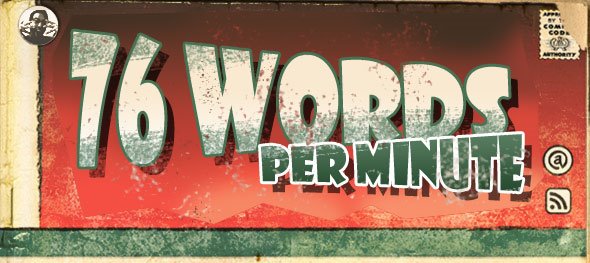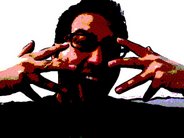It's been discussed, dissected, and now nominated. The movie about Los Angeles that most of us don't know and a movie about race relations many of us probably only think about. I finally got to see it this weekend (the coldest and rainiest of weekends we've had in a while) and now I finally have the ability to discuss and dissect. I'll have to wait until the Academy waives that whole union requirement before I can nominate, though.
Set in a 36-hour period around our fine city of Los Angeles, Crash is what director Paul Haggis describes as a "passion piece" directed at the things many of us might think, but dare not say. The action follows not just one direct storyline, but a tree of separate branches from the same trunk. Not a family in the genetic sense, but a group of people fed up with themselves, with their lives, and with the social elements they all face. A reputable work of the last year, it actually fits in nicely with a few themes I've seen in the last couple of days.
First off, and foremost, is the most blunt of themes thrown in our face, nay, shoved in our noses, of race relations. You know, race these days is such a relative term, so bear with me while I attempt to discuss. There are few times in my life when I can really say I've experienced racism, but this picture really ups the ante with so many more diatribes and incidents than I can safely relate. Mr. Haggis says that it's supposed to make us question how we view this fact of life in our own experiences: how do we perceive race, are we really unprejudiced, and how does it effect us? In a sense, it does make you think, but the movie really bludgeons the horse a few more times than I would have liked. I suppose, however, if it had been more subtle, the message may have been lost.
What I take away from it actually is more in line with what Mr. Haggis' intention is. There's a point at which Don Cheadle makes a remark about another character and it really made me think, "Why is it OK for me to point out things about my own ethnicity, but when others do, it's not OK?" I've thought about times when my friends and I are joking around. A few derogatory terms are thrown about here and there and I've even heard the word "wetback" a few times. It's all in jest of course, but it doest mean it stings any less. I even once had lunch with a person who used the word "beaner" right in my presence. Perhaps this is my own fault for being unidentifiably Mexican ( look here for an example), but then again, is it my own fault if I don't make it point enough to disclose my discomfort?
I guess this goes back to yesterday's post about perception, self-perception and the like. How many of us in this city really know each other enough to have that level of comfort? How many of us really know what that level is to begin with and is it that distance between Manhattan Beach and Pomona that makes the line indistinguishable? Really, being the sheltered uncommon coconut many see me as from Orange County, I have not experienced as much aggression, hatred, and derision as a recent Mexican immigrant, and having those four generations behind me really helps in that sense, but does that make it OK for me to perceive certain anti-immigrant testimony with indifference? On the other hand, do I really know what it's like to have gone through that experience and is it enough to know what my grandparents and great-grandparents went through for me to be here? It's all up to my own perception at this point, anything past that has to be an education.
Don Cheadle's character says it at the beginning of the movie,
It's the sense of touch. In any real city, you walk, you know? You brush past people, people bump into you. In L.A., nobody touches you. We're always behind this metal and glass. I think we miss that touch so much, that we crash into each other, just so we can feel something.
It's not the literal crash he speaks of, but the crash of culture, of conscience, and maybe even of a little self-righteousness. Do we all really know enough about each other to do and say the appropriate things and should it even matter if we do or not? It's not hatred that's prevalent in our city, but perhaps there is a bit of ignorance that I am not totally aware of myself.
This really has been a loaded post that got away from me. Ultimately, this is what the movie strives to do and this inspired discussion is a testament to the movie's message. I'm not sure if I've really straddled the line at objectivity, but I do pray that it inspires it's own discussion at some point. Fine performances, fine direction, and maybe a little too blunt, it worked for me.
Final Score: 3.5 out of 5 stars


3 comments:
good movie, interesting post. heh... and let's not forget about the canadian jokes i get all the time. :)
we're all americans, and regardless of how many generations seperate us from the time our family line became americans - we all have our own unique cultural identities. granted this identity might not be very defined for some, but its there nonetheless.
the question i often wonder about is what would happen if everyone took their cultural backgrounds more seriously. would it promote hatred and racism? or would it have the opposite effect and promote diversity and understanding of other cultures?
That's an interesting point and one that I've actually had personal experience with. One of the most unique aspects of college, for me, was the fact that our school had "ethnic theme" dorms. The topic of great debate amongst some, these houses generally have a requirement that 50% of the house must be of the "non-ethnic" variety.
Myself, I drew into the Native American theme house my sophomore year. The people I came to know in the house are very accepting, proud of their background, and also very willing to share with others there heritage. In this sense, the fact that they took their cultural background so seriously effected me greatly in that I felt so welcomed in the house that I ended up a part of the community. So in this case, it did promote diversity and understanding.
This is just one case though, I'd imagine things could have been much different elsewhere, it just depends on the state of the open mind, I guess.
Post a Comment